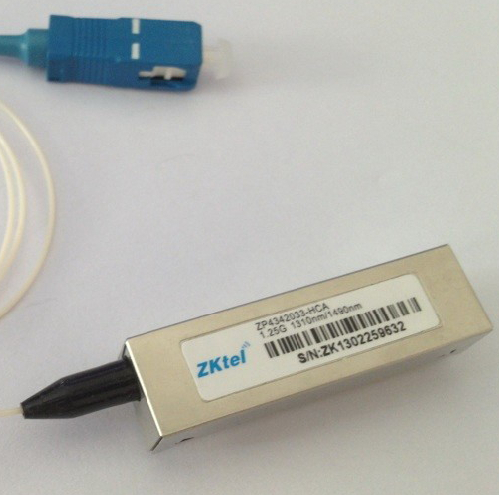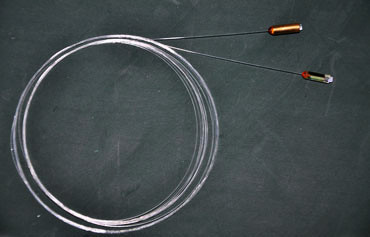Huawei And Zte Ethernet Switch Router - China
price: contact company for price
Brief Introduction
The S6700 series switches (S6700s) are next-generation 10G box switches.
The S6700 can function as an access switch in an Internet data center (IDC) or a core switch on a campus network.
The S6700 has industry-leading performance and provides up to 24 or 48 line-speed 10GE ports.
It can be used in a data center to provide 10 Gbit/s access to servers or function as a core switch on a campus network to provide 10 Gbit/s traffic aggregation.
In addition, the S6700 provides a wide variety of services, comprehensive security policies, and various QoS features to help customers build scalable, manageable, reliable, and secure data centers.
Ordering Information
Product Description
S6700-24-EI Mainframe(24 10GE SFP+, Dual Slots of power, Without Power Module)
S6700-48-EI Mainframe(48 10GE SFP+, Dual Slots of power, Without Power Module)
500W AC Power Module
500W DC Power Module
Specification
Item
S6700-24-EI
S6700-48-EI
Port
24* GE SFP/10 GE SFP+ port
48* GE SFP/10 GE SFP+ ports
MAC address table
128 K MAC address entries
MAC address learning and aging
Static, dynamic, and blackhole MAC address entries
Packet filtering based on source MAC addresses
VLAN
4K VLANs
Guest VLAN and voice VLAN
VLAN assignment based on MAC addresses, protocols, IP subnets, policies, and ports
1: 1 and N: 1 VLAN Mapping
QinQ and selective QinQ
IPv4 routing
Static routing, RIPv1, RIPv2, ECMP, and URPF
OSPF, IS-IS, and BGP
VRRP
Policy-based routing
Routing policy
IPv6 routing
Static route
RIPng
OSPFv3
BGP4+
IPv6 features
Neighbor Discovery (ND)
PMTU
IPv6 ping, IPv6 tracert, and IPv6 Telnet
6to4 tunnel, ISATAP tunnel, and manually configured tunnel
ACLs based on the source IPv6 address, destination IPv6 address, Layer 4 ports, or protocol type
MLD v1/v2 snooping
multicast
Static Layer 2 multicast MAC address
MAC-based multicast forwarding
IGMP snooping and IGMP fast leave
Multicast VLAN
MLD snooping
IGMP proxy
Controllable multicast
Port-based multicast traffic statistics
IGMP v1/v2/v3
PIM-SM, PIM-DM, and PIM-SSM
MSDP
QoS/ACL
Rate limiting on packets sent and received by an interface
Packet redirection
Port-based traffic policing and two-rate three-color CAR
Eight queues on each port
WRR, DRR, SP, WRR+SP, and DRR+SP queue scheduling algorithms
Re-marking of the 802.1p priority and DSCP priority
Packet filtering at Layer 2 to Layer 4, filtering out invalid frames based on the source MAC address, destination MAC address, source IP address, destination IP address, port number, protocol type, and VLAN ID
Rate limiting in each queue and traffic shaping on ports
Reliability
STP(IEEE 802.1d), RSTP(IEEE 802.1w), and MSTP(IEEE 802.1s)
BPDU protection, root protection, and loop protection
RRPP ring topology and RRPP multi-instance
Smart Link tree topology and Smart Link multi-instance, providing the millisecond-level protection switchover
SEP
ERPS(G.
8032)
BFD for OSPF, BFD for IS-IS, BFD for VRRP, and BFD for PIM
E-Trunk
Security
User privilege management and password protection
DoS attack defense, ARP attack defense, and ICMP attack defense
Binding of the IP address, MAC address, interface, and VLAN
Port isolation, port security, and sticky MAC
Blackhole MAC address entries
Limit on the number of learned MAC addresses
802.1x authentication and limit on the number of users on an interface
AAA authentication, RADIUS authentication and TACACS authentication
SSH v2.0
Hypertext Transfer Protocol Secure (HTTPS)
CPU defense
Blacklist and whitelist
Management and maintenance
Stacking (using service ports as stack ports)
MAC Forced Forwarding (MFF)
Virtual cable test
Ethernet OAM (IEEE 802.3ah and 802.1ag)
Local port mirroring and remote switched port analyzer (RSPAN), allowing an observing port to forward packets
Remote configuration and maintenance using Telnet
SNMP v1/v2/v3
RMON
Web NMS
HGMP
System logs and alarms of different levels
GVRP
MUX VLAN
sFlow
Operating environment
Operating temperature: 0℃–45℃(long term); -5℃–50℃(sho rt term)
Relative humidity: 10%–90% (non-condensing)
Input voltage
AC:
Rated voltage range: 100 V to 240 V AC, 50/60 Hz
Maximum voltage range: 90 V to 264 V AC, 50/60 Hz
DC:
Rated voltage range: –48 V to –60 V, DC
Maximum voltage range: –36 V to –72 V, DC
Dimensions (W x D x H)
442 mm x 420 mm x 43.6 mm
Power consumption
153W
240W
Characteristics
Large-capacity, high-density 10 Gbit/s access
To provide sufficient bandwidth for users, many servers, particularly those in data centers, use 10G network adapters.
The S6700 can be used in data centers to provide high forwarding performance and 10GE ports.
The S6700 has the highest density of all 10GE ports and the largest switching capacity among its counterpart switches.
Each S6700 provides a maximum of 48 line-speed 10GE ports.
S6700 ports support 1GE and 10GE access and can identify optical module types, maximizing the return on investment and allowing users to flexibly deploy services.
The S6700 has a large buffering capacity and uses an advanced buffer scheduling mechanism to ensure non-block transmission when data center traffic volume is high.
Comprehensive security policies
The S6700 provides multiple security measures to defend against Denial of Service (DoS) attacks, as well as attacks against networks or users.
The S6700 supports DHCP snooping, which generates user binding entries based on users' access interfaces, MAC address leases, and VLAN IDs.
The S6700 supports strict ARP learning, which prevents ARP spoofing attacks that exhaust ARP entries.
The S6700 supports centralized MAC address authentication and 802.1x authentication.
Higher reliability mechanisms
The S6700 supports redundant power supplies.
You can choose a single power supply or use two power supplies to ensure device reliability.
With two fans, the S6700 has a longer MTBF time than its counterpart switches.
The S6700 supports the enhanced trunk (E-Trunk) feature.
When a CE is dual-homed to two S6700s (PEs), E-Trunk protects the links between the CE and PEs and implements backup between the PEs.
E-trunk enhances link reliability between devices.
The S6700 supports the Smart Ethernet Protection (SEP) protocol, a ring network protocol applied to the link layer on an Ethernet network.
The S6700 supports Ethernet Ring Protection Switching (ERPS), also referred to as G.
8032 - As the latest ring network protocol, ERPS was developed based on traditional Ethernet MAC and bridging functions and uses mature Ethernet OAM function and a ring automatic protection switching (R-APS) mechanism to implement millisecond-level protection switching.
ERPS supports various services and allows flexible networking, helping customers build a network with lower OPEX and CAPEX.
The S6700 supports VRRP.
Two S6700s can form a VRRP group to ensure nonstop reliable communication.
Multiple equal-cost routes to upstream devices can be configured on the S6700 to provide route redundancy.
When an active route is unreachable, traffic is switched to a backup route.
Enhanced QoS control mechanism
The S6700 implements complex traffic classification based on packet information, such as the 5-tuple, IP preference, ToS, DSCP, IP protocol type, ICMP type, TCP source port, VLAN ID, Ethernet protocol type, and CoS.
ACLs can be applied to inbound or outbound directions on an interface.
High scalability
The S6700 supports the iStack function, which allows switches that are far apart to form a stack.
A port on the S6700 can be configured as a stack port using a command for flexible stack deployment.
The distance between stacked switches is further increased when the switches are connected with optical fibers.
Convenient management
The S6700 supports automatic configuration, plug-and-play, deployment using a USB flash drive, and batch remote upgrades.
These capabilities simplify device management and maintenance and reduce maintenance costs.
The S6700 supports SNMP v1/v2/v3 and provides flexible methods for managing devices.
Users can manage the S6700 using the CLI, Web NMS, Telnet, and HGMP.
The S6700 supports GARP VLAN Registration Protocol (GVRP), which dynamically distributes, registers, and propagates VLAN attributes to reduce network administrator workloads and ensure correct VLAN configuration.
The S6700 supports Multiplex VLAN (MUX VLAN).
MUX VLAN isolates Layer 2 traffic between interfaces in a VLAN.
The S6700 supports BFD, which provides millisecond-level fault detection for protocols, such as OSPF, IS-IS, VRRP, and PIM, to improve network reliability.
Various IPv6 features
The S6700 supports IPv4/IPv6 dual stack and can migrate from an IPv4 network to an IPv6 network.
S6700 hardware supports IPv4/IPv6 dual stack, IPv6 over IPv4 tunnels (including manual tunnels, 6to4 tunnels, and ISATAP tunnels), and Layer 3 line-speed forwarding.
The S6700 supports various IPv6 routing protocols including RIPng and OSPFv3.
Deployment Scenarios
1 Data Centers
The S6700 can be used in Huawei's sustainable data center solution, which has four major highlights: evolution, availability, pooling, and visualization.
As shown in the following figure, the S9700 Terabit routing switches function as core switches in a data center and use firewall and load balancer boards to ensure security and perform load balancing.
The S6700s function as access switches and provide high-density 10GE ports to connect to 10G servers.
2 Campus Networks
The S6700 can function as a core switch on a campus network and provide high-density line-speed 10GE ports, rich service features, and comprehensive security mechanisms.
This makes the S6700 a cost-effective option.
Company Contact:
- Posted By: win and win import and export limited
- Phone: 8618680210357
- Address: Rm408, No.20 Qiaoyan Street., Yueken Road, Tianhe , Guangzhou , China
- Email:

Published date: March 18, 2014
- Business Description: Established in 2009, located in Guangzhou China, Win and Win Import and
Export Ltd today is one biggest provider for Huawei and ZTE Triple play
series products (including GPON, EPON, EOC), Switch, Router, Access,
Fiber media converter, Video converter, SFP transceiver etc.
Focusing on fields of telecommunications, Security, Fiber series etc, Win and Win Import and Export has provided products and services to Thailand, Indonesia, Vietnam, Singapore, Malaysia and many other countries all over the world.
Related listings
-
 Epon Onu And Olt Bidi Sff Or Sfp Single Mode TransceiverCommunications - Equipment - Shaoxing ZKTel Euipment Co.,LTD - China - February 24, 2014 - contact company for price
Epon Onu And Olt Bidi Sff Or Sfp Single Mode TransceiverCommunications - Equipment - Shaoxing ZKTel Euipment Co.,LTD - China - February 24, 2014 - contact company for priceFeatures: • BIDI SFF or SFP Single Mode Transceiver • SC Receptacle or With Pigtail is optional • Compliant with SFF MSA-2000 • LVPECL Differential Inputs and Outputs • Compliant with Telcordia (Bellcore) GR-468- CORE • 1310 nm Burst Mode Transmitter...
-
 Pm Single Fiber CollimatorCommunications - Equipment - Hirys Fiber Optical Communication CO.,LTD - China - February 15, 2014 - contact company for price
Pm Single Fiber CollimatorCommunications - Equipment - Hirys Fiber Optical Communication CO.,LTD - China - February 15, 2014 - contact company for pricePolarization Maintaining Collimator Features Low Insertion Loss Low Back Reflection High Environmental Stability Applications PM Isolator Laser Beam Collimating PW WDM Wavelength (nm) 1310+30, 1550+30 or custom wavelength Working Distance (mm) 5 or s...
-
 Single Fiber PigtailCommunications - Equipment - Hirys Fiber Optical Communication CO.,LTD - China - February 15, 2014 - contact company for price
Single Fiber PigtailCommunications - Equipment - Hirys Fiber Optical Communication CO.,LTD - China - February 15, 2014 - contact company for pricePigtail is critical part of fiber optical passive product, usually used for passive collimator, it has the following characteristics: High coupling efficiency Easy assembly High-precision polishing angle and coating effect HF single/dual fiber pigtai...
Safe Trade Tips
- Ask for business references and check them
- Use a payment method that offers better protection for all such as Letters of credit and verified professional escrow services. Avoid payments in advance such as money transfers
- Verify their business via their local Chamber of Commerce
- Search the internet using their website address, their business name, their phone and fax numbers, and their email addresses to see if you can find any feedback about them.
- Get to know more about scams and fraud to avoid: Internet Crime Complaint Center - Consumer Financial Protection Bureau
- This site is never involved in any transaction, and does not handle payments, shipping, guarantee transactions, provide escrow services, or offer "buyer protection" or "seller certification"
